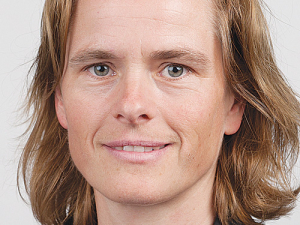Consumers will buy New Zealand produce based on taste, price and convenience; the ‘clean, green’ image may not be so much a factor, says a visiting European expert.
Asked by Rural News if NZ had the clean, green image it hoped it did, Rabobank’s senior fruit vegetable and floriculture analyst Cindy van Rijswick said she was “not sure about that”.
“Maybe compared to a few other countries, but I don’t think that’s what drives people choosing a certain product,” she says.
“When people buy products they look at the taste, price and convenience. Those are the most important consumer drivers.”
Visiting recently from Rabobank’s global headquarters in the Netherlands, van Rijswick says NZ’s fruit and vegetable sector is well positioned to take advantage of opportunities arising from changing international horticulture markets. There are not huge opportunities in Europe, however, except perhaps for kiwifruit, apples and berries.
The opportunity for NZ is global.
“It would be good to diversify markets as there is so much competition in the world globally. A lot of companies are already doing that.”
Rabobank has not done specific studies on whether NZ’s horticultural boom will last. And she warns that whenever there is a boom, people always start expanding their businesses, bringing a lot more supply.
“NZ should definitely be aiming for the higher end market. There is not much growth in the lower end market; all the growth is in the higher end.
“The consumer trends in Europe are similar to what is happening in the US and will continue in Australia and NZ. People are shifting to higher value, premium foods.”
Europe has many discount supermarkets taking market share but she does not know whether they will enter the NZ market because it is a small market for them.
“What you do see is online retailers and that will happen here. It depends on the type of products. Online provides a lot of opportunities for selling products. Whereas NZ producers have only a few options for selling, [by selling online] domestically you are not dependent only on the two largest retailers.”
The consumer trends are very varied. “Some days they will buy a lot of cheap stuff, others expensive stuff. A lot of new products are coming on the market and this trend will only speed up.”
Do we have things to learn from Europe in production techniques?
“I think actually NZ produces food very well; you are very adaptive to new technology.
“The export growers such as apples and kiwifruit in particular are very well on top of it. The vegetables growers may have labour and cost saving technologies they could take from Europe.”
Where do we need to learn?
“Actually I don’t think there is so much to learn. I think NZ is doing a good job.”
Efficiency may be where we could make the most advances, says van Rijswick, especially in marketing the products.
During this, her first time in NZ, she sees positive thinking here in the horticulture sector.
“In Europe there is a little less positivity; it is good to be in such a positive environment.”



















